In his excellent exposé of the recent decision by the Knight-Cronkite News Lab (KCNL) to advocate journalism that goes beyond objectivity, and in light of the report from the Columbia Journalism Review (CJR) confirming that RussiaGate was fabricated nonsense, genuinely independent researcher, writer and filmmaker James Corbett made a number of very salient points.
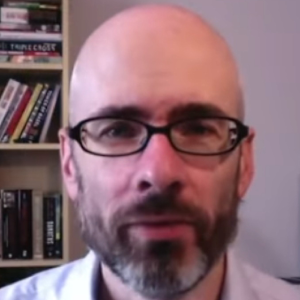
As Corbett points out:
As a moment’s sober reflection will immediately reveal, the mouthpiece mockingbirds of the controlled establishment media have never been objective and they have no credibility to damage.
But there is far more to this particular psyop than merely covering up the inconvenient history of media. The new narrative, sold to us in this instance by both KCNL and the CJR, is laying the foundations for a transformation of the media landscape.
The establishment wants us to believe that our “trust” in journalism is a vital component of our democracy—and, moreover, that the state can determine which news media organisation is deserving of our “trust.”
In truth, if democratic principles really matter to us, it is essential that we never trust any “news reports” from any journalist or news provider. Democracy places a duty upon us to be fierce critical thinkers. We should never unquestioningly accept anything we are told.
Journalism Is Story Telling
Every mainstream media (MSM) and “alternative media” outlet presents narratives. They are in the business of telling stories, not simply presenting “objective” facts.
Good journalism expresses an opinion and then cites the evidence that informs it. Well written journalism does this within the engaging and intriguing narratives it weaves. But no journalism is free from the journalist’s own conformation bias, and the tenor of the story is often directed by the editorial policy and allegiances of the publisher.
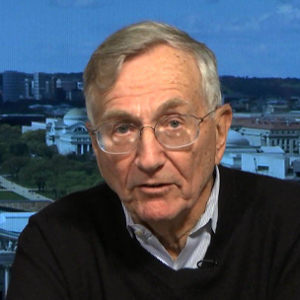
Pulitzer Prize winner Seymour Hersh’s recent investigation, in which he exposes the likelihood that the US government was behind the destruction of the Nord Stream II pipeline, is only available via independent outlets and on his own Substack. Despite this apparently being a story of enormous magnitude, the MSM seems extremely reluctant to bring it to wider attention. You can read about it only in the so-called “alternative media.”
While some MSM outlets report the official denial of Hersh’s piece, none have lent it much credibility, and many have been quick to cast aspersions on Hersh himself. Yes, the old game of attacking the messenger while avoiding the content of the message.
It is fair to say, based on the Hersh article alone, that no one can verify any of his revelations. He presents no evidence other than anecdotal accounts from unnamed sources. But nowhere in the MSM does there appear to be any interest in pursuing the needed investigation that Hersh’s piece appears to warrant.
Thus, it remains a piece of effective narrative journalism, most notably because the very specific references it makes to orders given and operations undertaken during the BALTOPS22 exercise can be investigated. Detailed questions can be asked of officials. The blanket denials of Hersh’s story and his precise allegations are not enough to discredit it.
Given all the circumstantial evidence that also points towards US and NATO aligned culpability, his journalism—a great story—adds fuel to the fire despite it not being a “factual report.” That the story he presents in part reflects his own perspective is irrelevant.
It is up to us to find out if his story is true.
The MSM Was Never Objective
One of the MSM’s main criticisms of the so-called “alternative media” is that it can often be described as activist journalism. This allegation implies that the perspective of the alternative news journalist biases their reporting. But such a criticism is itself a deception, because all journalism reports from a perspective.
There are basic commercial reasons why objectivity doesn’t suit journalism. Consumers of “news” don’t want to simply know what the facts are. They also want a steer on the broader implications of those facts. If that reaffirms their existing world view, all the better for sales. We all want to believe we are right and not be constantly reminded that we are probably wrong.
This is why very few Guardian readers also read the Daily Telegraph or Sun readers the Mirror, even when the presented “facts” are essentially the same. We pay for the perspective we agree with, not simply an objective reporting of the facts.
It is science, not journalism, that strives to achieve absolute objectivity in its pursuit of empirical facts. But the problem with scientific objectivity, beyond its corruption, is that it tends to introduce immense complexity and can be extremely boring to read. It doesn’t lend itself well to stirring up emotions or selling media content.
Other than a few obsessive researchers and the scientists themselves, few of us actually want to read highly technical and sterile scientific papers. We rely upon the journals and the MSM to tell us what the science says, wrongly assuming that their reporting of it is “objective.”
Our faith in the MSM places us in a vulnerable position, especially when it comes to the reporting of hard facts, such as those supposedly revealed by science. If those same alleged “facts” then become the basis for justifying government policy and/or our own decisions, then we had better be damn sure that our belief in the veracity of the story is well-placed.
The evidence that the MSM doesn’t even report the facts accurately is overwhelming. The CJR has exposed RussiaGate as the politically motivated nonsense it was. But this rubbish was relentlessly spewed out on both sides of the Atlantic for more than a year—alongside the equally baseless Skripal yarn—by a majority of MSM outlets. The obvious propaganda was designed to illegitimately demonise the Russian government.
The CJR report demonstrates that today’s Western MSM is a mass purveyor of mis- and disinformation. We are presently regaled with highly spurious Ukraine war propaganda. This is the culmination of the Russophobic Western MSM agenda that has been building for many years.
The scene has seemingly been set, and we have all been psychologically prepared for the current conflict. This makes it easier for us to imagine that the Russians are our enemy.
State propaganda partnerships with the MSM are nothing new. Three examples quickly come to mind:
— British military intelligence were feeding senior broadsheet correspondents “stories” for decades, long before the MSM made up tales about WMD in Iraq to convince the public to accept a fake casus belli for the Iraq War.
— The Church Committee formally exposed the “Operation Mockingbird” network in the US in 1975. The CIA had been manipulating the reporting of the US MSM for many years, feeding selected operative journalists intel that they then reported as “objective journalism.”
— The Mockingbird Operation PBSuccess employed public relations guru Edward Bernays to use the media to overthrow the Guatemalan government on behalf of the United Fruit Company in 1954.
While proven MSM disinformation operations and campaigns, such as these, have purportedly been assigned to the annals of history, disinfo activity is manifestly ongoing. If anything, state control of the MSM narrative for propaganda purposes has reached heights that even Bernays couldn’t have imagined.
State propaganda has been privatised. Governments channel taxpayers’ money to their global corporate partners, which in turn pay the MSM to produce the desired disinformation. During the pseudopandemic we saw whole teams of behavioural scientists at the World Health Organisation global governance level and in various nations states “use” the MSM to unethically deploy applied psychology and disinformation to tackle what the establishment and its MSM hypocritically called “the infodemic.”
When Spi-B—the team of behavioural change experts within the UK’s Scientific Advisory Group for Emergencies (SAGE)—recommended that the UK government should “use the media” to increase “the perceived level of personal threat” to convince British people that they were living through a pandemic, contrary to the evidence of their own eyes, the MSM dutifully obliged. They launched numerous corporate backed terror campaigns upon an unsuspecting public.
We are constantly told by the political class that “press freedom” is an essential part of our democracy. If the MSM really were a pluralistic and free media, it wouldn’t be possible to “use” it for propaganda. There would be too many dissenting articles by investigative MSM journalists to maintain a single, uniform narrative across all outlets simultaneously. But it isn’t a pluralistic and free media and never was, so it is entirely possible for the MSM to be co-opted. What does this say about our alleged democracy?
The so-called “infodemic,” identified by the World Health Organisation as being “just as dangerous” as an alleged global pandemic, included any and all information that questioned the diktats of our “democratic” policymakers. The MSM attacked all dissent—literally without question—on the behalf of governments and intergovernmental authorities and their corporate partners.
The infodemic, according to the establishment, was prompted by the public’s questions about government policy, about “science” as reported by the MSM, and about data that revealed statistical manipulation. The infodemic was also prompted by the MSM looking askance at sceptical scientific papers shared by people who dared question the reported “science” as well as at the millions of people who raised their voices in mass protests. These protests were either ignored by the MSM or the protestors views were distorted and their peaceful demonstrations labelled “extremist.”
There was nothing remotely “objective” about any of this mainstream “news coverage.” Rather, in total obedience to the state, the Western MSM attacked informed opinion, ridiculed all questions and demonised individuals who did not comply. Not because there was any justification for doing so, but because that is the role of the MSM. Objectivity is nowhere in sight, nor has it ever been.
The MSM Has Never Questioned Power
The Knight-Cronkite News Lab (KCNL) goal is to create a “set of standards for trustworthy news.” Indeed, maintaining the public’s “trust” is the overwhelming fixation of the MSM and its government partners. We are urged to place our faith in those who evidently lie to us and suppress facts all the time.
At one point the KCNL noted:
As early as the turbulent 1960s, some younger journalists, especially investigative reporters, began to question what objectivity really meant if it did not challenge power, privilege and inequality.
Similarly, the CJR report on RussiaGate states that “primary missions” of journalism include “informing the public and holding powerful interests accountable.”
We are told that “holding power to account,” or watchdog journalism, is the core principle of journalism. Yet nowhere in the International Federation of Journalists Charter of Ethics or in the UK National Union of Journalists Code of Conduct is there any mention of this alleged principle.
The American Press Association’s (APA) Principles of Journalism does say that journalism must serve as an independent monitor of power. But this “principle” speaks more about defending journalists’ alleged legal “rights” than it does about exposing any wrongdoing:
Journalism has an unusual capacity to serve as watchdog over those whose power and position most affect citizens. The Founders recognized this to be a rampart against despotism when they ensured an independent press; courts have affirmed it; citizens rely on it. As journalists, we have an obligation to protect this watchdog freedom by not demeaning it in frivolous use or exploiting it for commercial gain.
The APA’s watchdog principle is supposedly protected by the government and its courts. It is not a “right,” but rather a permit bestowed upon American journalists by the establishment. This permit can be rescinded. The extent to which journalists in the US can question “power” is based solely on the protection that legacy journalism receives from the institutions it allegedly questions.
Demeaning something as frivolous is precisely what the MSM does when it labels people as conspiracy theorists, as science deniers or as COVID deniers. These attacks are rarely, if ever, based upon any exploration of the evidence. In fact, the labelling system itself is used to omit, obscure or “deny” the evidence.
All the APA’s principles mean is that certain subjects and certain kinds of evidence, characterised as “frivolous,” must not be reported by its members. What is or is not considered “frivolous” is entirely subjective. Given journalism’s legislative “protections,” it seems pretty clear what will be considered “frivolous.” A high degree of subjectivity, not objectivity, is the full extent of the APA members’ ethical commitment to “watchdog” journalism.
We only need look at the history we’ve discussed to understand that the news media barely and rarely holds power to account. Instead, the MSM is more frequently an extension of state and corporate power and is used to control the people through disinformation, omission and misdirection rather than to inform them and question power of their behalf.
This is not to say that good MSM journalism doesn’t exist. But, on those few occasions when MSM journalists do expose state crimes, they pay a terrible price for doing so. Julian Assange is among the small band of journalists who have dared to question power. He currently languishes in a British high-security prison precisely because he did so.
The MSM doesn’t question power when it deceives the public about chemical weapon attacks on behalf of the state. It isn’t holding power to account with its refusal to investigate, or even report, evidence of malfeasance in office. Its ignoring of state crimes can in no way be considered “watchdog freedom.” And it certainly does not act as any kind of watchdog when it simply reports whatever it is ordered to report by a centrally controlled global propaganda network.
We Are the Problem and the Solution
Social media has been lambasted for corralling its users into self-affirming information silos. While this is somewhat concerning, it isn’t anything new. The technological capability of social media to control opinion is an added dimension, to be sure, but the MSM has been doing exactly the same thing for more than a century.
Unfortunately, the MSM is able to propagandise us with relative ease. It does this partly by exploiting our own misconceptions. While we all seem to agree that the Russian and Chinese MSM are state propaganda, we Westerners, for some unknown reason, apparently imagine that our own mainstream media isn’t.
There is, however, a caveat with regard to this apparent gullibility. Research statistics show that there is a remarkable lack of trust in the MSM in the West. Notably, in the US “trust” in the news is as low as 26%. The UK fares little better, at just 34%. “Trust” in the news is higher in Scandinavian countries.
We only need have brief conversations with friends and family to realise that the propaganda does, in fact, work. But what explains this disconnect between our lack of trust in the MSM with our continuing willingness to believe what it tells us?
The answer lies in the greatest achievement of the Western MSM and the parasite class it serves: They have convinced us that our media is free and is pluralistic—this despite it never being true.
Consequently, it seems that while we are wary of spin and propaganda, we refuse to contemplate the likelihood that the MSM is out-and-out lying to us. Perhaps that is because we perceive the MSM as basically serving the public interest—even if we admit to ourselves that it bends the truth a little. Our scepticism does not extend as far as disbelief.
We therefore remain unable to reconcile our credulous acceptance of MSM claims about itself with the reality that we are being misled en masse by that same institution. Cognitive dissonance—the uncomfortable psychological sensation we experience when we hold two or more contradictory thoughts at the same time—may account for our irreconcilable beliefs.
In other words, we are caught between not “trusting” the MSM, on the one hand, and, on the other, our inability to accept the fact that virtually nothing the MSM tells us is true. The implications of this dichotomy are beyond anything we want to contemplate. As a result, we still believe that “the news” is our window on the world.
If you think about it, the idea that all the important global events of the day can be condensed into a single “newspaper” or a 30-minute “evening news” broadcast is quite ridiculous. Even if it were composed of honest, unbiased reports, which it seldom is, “the news” cannot provide us with anything approaching a reasonable understanding of what is actually going on.
Therefore, if we genuinely want to know what’s happening, we have to actively seek information and critically evaluate it ourselves. As James Corbett wrote:
Granted, the realization that all media is constructed for us by someone with an interest in making us believe something is not a happy one for most people. Instead, it is a deeply unpopular realization, because it means we can’t just switch on the evening news, switch off our brain, and expect some totally neutral journalistic saviour to come along and hand us “the news” from on high.
Like it or not, it is our responsibility to think critically about all information, no matter who relays it. This responsibility applies equally to the stories we are fed by the “alternative media.” This article should be read critically! It is, after all, just information that’s being passed along to you.
The Knight-Cronkite News Lab suggests that journalists should give their “readers, viewers, listeners and users valuable information that helps them make better decisions and lead better lives.”
Here, the new breed of MSM journalists, no more nor less objective than their predecessors, has been given the task of reporting “the news” from a value-driven perspective. The aim is to change us by making us “better” people. So what are the values the new breed of journalists are being taught to advocate?
KCNL tell us:
There is broad consensus today about the reality of climate change and the threats that it poses. That may well inform how many resources a newsroom devotes to reporting on the issue as well as any point of view its stories reflect. The same might go for opposition to systemic racism, say, or support for LGBTQ rights. [. . .] One value we believe is worth stating out loud is support for democratic institutions, which are under attack on multiple fronts. Trustworthy news is essential to sustaining a healthy democracy.
Herein lies the problem. Every one of these “values” serves global political agendas and dovetails neatly with government policy and, perhaps most notably, with global governance policy. That is to say, the MSM’s new values are exactly the same as their old values. Their “new” objective, just like the old objective, is to advocate for power, not question it.
Contrary to the KCNL’s claims, democracy is not founded upon our acceptance of whatever we are told by government “institutions.” Rather, it is predicated upon our ability not just to question the state but to limit it. Thus, KCNL’s contention that a “healthy democracy” is one where “democratic institutions” assert sovereignty over us is entirely false.
To point out that these institutions have no authority over us whatsoever is not to attack “democracy.” On the contrary, doing so defends “democracy.” But you will never hear that from the MSM. The MSM’s continuing mission is to maintain the lies that ensure we never realise this “truth.”
It is ironic that the MSM attacks their alternative counterparts for advocacy journalism and yet the MSM’s own apparent solution to the trust issue that preoccupies it is to itself emulate advocacy journalism. The difference? The alternative media is far more likely to advocate the questioning of power, while the MSM looks set to continue advocating for power.
Seeing as how the concept of “news” is, in and of itself, absurd, the suggestion that news should be “trusted” simply adds another layer of misdirection to this new MSM advocacy journalism. So, if our “faith” in the stories we are told is part of the problem, a solution is self-evident. We should abandon any notion of “trust.” We should invest our efforts in being “better” critical thinkers.
This is something I have emphasised on my own blog:
Why should you trust me? Don’t. I do not ask that you trust me.
Any media outlet or commentator that asks you to “trust” them is suggesting that you abandon critical thinking and simply believe whatever they tell you. [. . .] I provide the evidence to support my opinions, but that doesn’t mean my conclusions are always correct. We all make mistakes.
In his previously referenced article, James Corbett provides a list of questions we should all ask ourselves whenever we encounter information offered by any source. We don’t need government or any other “democratic institution” to control information for us, nor we do need to be told what to think about it. We just need to think critically and answer these simple questions to our own satisfaction:
- Why is this media outlet showing us this report?
- What interest do they have in making us think a particular way about the issue presented?
- Can the information in the report be independently confirmed or triangulated from other sources?
- Whose viewpoint is being shown, and how is that viewpoint portrayed? Whose viewpoint is being excluded? Why?
- What language is being used to frame the issue?
- What does the report make us believe about the world?
- Are we in agreement with the report? Why or why not?
Ultimately, as ever, the choice is yours. You can gather information from any source you wish. If you want to know what the state wants you to believe and what behaviour it expects of you, then go to the MSM. If you want to explore broader criticism of government and its policies, then the more independent “alternative media” provides richer pickings.
Treat those two impostors just the same. There is honest, high-quality journalism in both. There is also propaganda to be found in both. Fortunately, if you answer James Corbett’s suggested questions, you’ll be able to spot the difference more often than not.

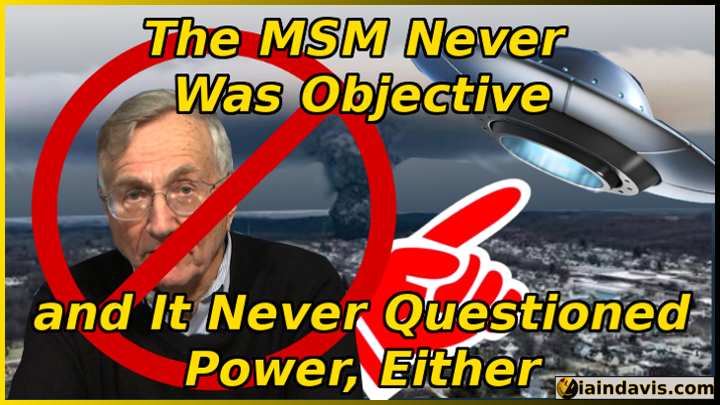
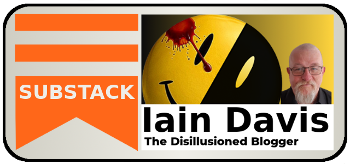

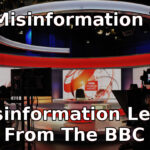
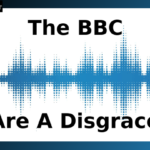
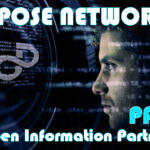
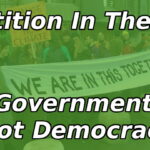
Theology now is science, cult now is elections, sermon now is media, missionaires now are journalists, priests now are politicians, christendom now is democracy. The true nature of power was always the same black magic of constant phantasma, of lieing, terror and fear, of neighbours burning neighbours.
Thank you for this article pointing out how the western virtual world has overtaken reality.
As Biden points out which should one choose a “Dimocratic” world or an “Autocratic” world. As an autocrat is decided on ability and not on patronage the answer is obvious.
I have given up completely on MSM and now rely on Zerohedge and theduran.locals.com to keep me informed. Maybe I have become biased but I find the news coming out of Russia and China far more accurate and believable.
One thing I find strange and that is why do Russia and China employ the same tactics as The West and pump a few million of whatever into supporting the independent press around the world?
To me, the BBC has become so bad that it should be renamed something like the Bilious Balderdash Corporation. Can it ever regain any credence as as a source for news?
I am reminded on what Iago had to say about reputation, the BBC now has none.
Thanks Brian. Yep the BBC are a disgrace:
https://iaindavis.com/the-bbc-are-a-disgrace/
I meant to say “not employ” I should always check what I have written.
AI might not have made that mistake.
1 Recommended is only what recommender likes or wants to sell.
When we trust, we let our guard down so, predators try to present as trustworthy. Emphasis on presentation blinds to ‘it’s the heart that counts, not the skin.’
Phrase ‘public interest’ open to interpretation. Press’ job is maximise sales so, supply what interests most. If most dislike facts, no market for non-fiction.
2 Could see at time MSM’s stories about Iraq, Skripal, virus were incorrect: non-MSM not as necessary as its sales-spiel claims.
Diving into second misses first: has anything happened to Nord-stream? Seems no proof either way. If fact is no, who etc is absurd but spreads MSM’s bubbles.
Some non-MSM seem disguised MSM, some waverers, each own drum, not much original, stories (not reports) circular, fearful sensation – resembles MSM.
Endless Christmas pantomime: ‘it’s such and such, oh no it isn’t, oh yes it is, oh no it isn’t …’
Emotive adjectives and re-hash are suspect.
3 Ineffective has no effect. If jabs cause harm, are effective as MSM say and non-MSM refute while publishing adverse events.
Different objectives: cause harm/not be harmed. ‘Adverse’ depends on intention.
What, where, when, who, why?
Jabbers safe from recrimination? Protect NHS from work? Reduce poverty by killing poor? Reduce ill-health with DNRs etc?
‘Climate change’ could refer to political climate or various corporate culture interpretations; controversial words around phrase, smoke-screen.
‘Pensioners’ does not say all pensioners. Neither ‘want’ nor ‘should’ say will. ‘Event’ does not say effect. ‘Our’ is speaker’s.
Zero after ‘tax’?
Escalated price escalates VAT before ‘untaxed’ grants. Artificial is fake, IT’s ‘intelligence’ mere information. Literally brainless called ‘smart’.
We see and talk to dots on screen when using Zoom, meeting no one.
‘Social’, ‘crisis’, ‘personal’, ‘face-to-face’, ‘in-person’ all hijacked and, Dahl is not the author if book re-written.
4 I don’t feel happy if proven correct heading for mess. If know facts as far as possible, know where we are. Can deal with problems if known.
Absolute is unattainable.
Atom was thought smallest particle but when found, realised it contains even smaller: ‘est’ fine-tuned off atom’s description – nearer to truth/fact.
Cannot be absolutely correct. Likely each partly correct. So, find what bits each got correct, combine those and both become more correct.
Many comments express disillusionment with MSM, delight to have found non-MSM and say never looked at MSM since.
I hope they’re not heading for second disillusionment by doing same as before i.e. collecting half available info on which to base their own decisions.
If incorrect about something: fine-tuning curtails length of time I look a fool.
Thanks Jane. This is why our own critical thinking skills are so important. We shouldn’t trust any single sources. This blog included.
I hope I am not the only one who finds the KCNL report deeply disturbing. I can’t imagine that Walter, for all his faults, if still alive would allow his name to be associated with any of it..
But a timely and important article, Iain. Important – though I suspect that you are preaching to a converted audience.. We should all try to spread it around more widely as much as we can. I do like your mention of the importance of critical thinking!
James Corbett’s checklist of questions is useful. And fairly easy to apply when dealing with the legacy media whose affiliations are generally easy to identify. Especially when the Trusted News Network pretty much ensures the same spin on every story, even down to precisely the same phrases being trotted out time and time again.
But it’s a great deal trappier when trying to get behind the angle used by smaller organisations and websites, lone commentators and stories created and spread by the huge spectrum of NGO’s pushing so much ‘content’ out and on to the web and social media.
Two questions that often help is ‘who actually funds this outfit?’ and ‘to whom is this guy affiliated?’. This takes a bit more digging, but it’s generally well worth the effort. For it soon becomes clear what perspective is likely to be taken on any particular event or issue. And if the funding is not easy to track down, then generally researching members of the editorial board or the equivalent thereof always throws a good deal of light. Often the accredited ‘journalist’ is being steered to a subject or an angle by someone or other. Academic pedigree also quickly shows the affiliations, especially as so many institutions are funded by all sorts of commercial entities with specific agenda.
Even one small quote used in an article can spread light on why the article has been written and who the real sources are and how reliable or objective their information can be considered to be.
It’s sad in some way that we have to resort to such things. But I agree. In reality it has always been like that – Carol Quigley’s work on the origins of WWI is a wonderful case in point.
One good thing, at least for the time being, is that the internet is an incredibly useful research tool for the discriminating reader. Let us all hope (perhaps against hope itself) that it remains so if not for ever at least for as long as possible…
Thanks Fitzroy. I agree we are in danger of talking amongst ourselves. That’s why it is so important to share information by any and all means at our disposal.
We have to be aware of talking amongst ourselves so we need to get our comments out on to main stream sites, where we can. I am still banned by Twitter and have to choose my words carefully when commenting on main stream articles, such is the censorship today.
We also have to be aware of ‘limited hangouts’. If you’re an intelligence agency/global corporation/government etc and you have been doing things you need to hide from the public, and those things are starting to come to light such that you can’t just deny that you are doing them anymore, what you do is, you release a limited part of the story.
It would make sense to use someone who seems part of the alternative news circuit to tell that story as they would be trusted and followed. What major stories are they not talking about? We should look at those too.
Very good. I have written on MSM for years. Their power is so immense now, and esp with the illegal force behind the Trusted News Imitative, that we can’t just hope reason and sanity will return by telling the choir not to beleve them. We have only one option since they are at the top of the Resetting food chain. They must be busted up as an illegal information monopoly.
Thanks Lionel. May I suggest another option. It seems to me that he whole scam, and the MSM obsession, is about inculcating “trust.” If we were all better versed in critical thinking it really wouldn’t matter who the story teller is or even what the story was.
Fitzroy,
“Often the accredited ‘journalist’ is being steered to a subject or an angle by someone or other”.
This became very clear during the Covid years, when the angle was pre-determined by the Government Nudge Units & anybody who offered an alternative opinion, however qualified, was character assassinated & discredited.
…& now they have moved on to similar strategies with the Green Agenda.
In these days of instant gratification, fewer people want to investigate things for themselves, not even the – so called – Reporters, whose ideas of reporting all too often revolve around cut & pasting from social media, other news outlets, & government handouts, from the comfort of an office chair.
Investigative Journalism & Critical thinking are becoming dying skills these days, & the Elite couldn’t be happier.
Thanks for the comment Mike. I’m afraid I have to agree with you.